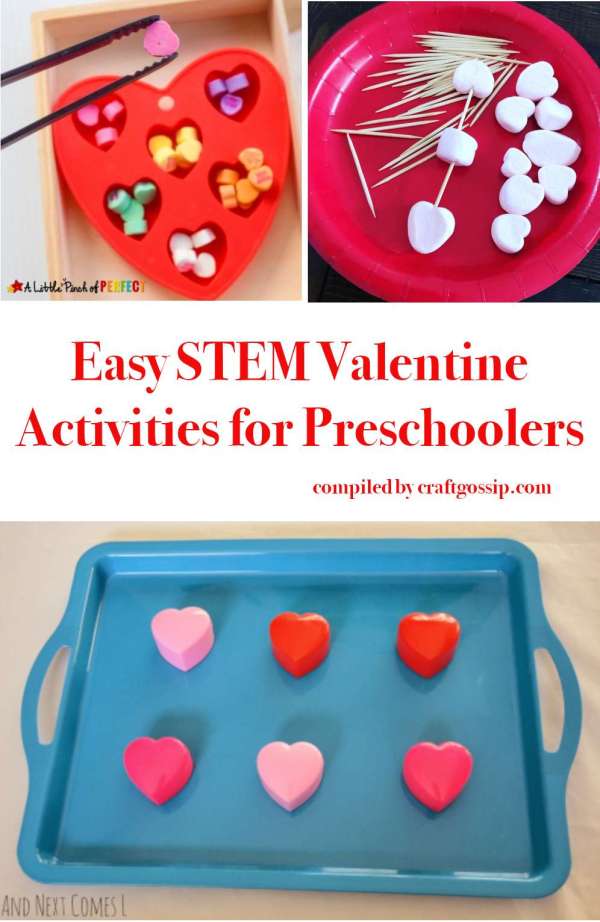Sensory activities and STEM projects are great for any time of year, and it’s easy to give them a holiday twist for kids of any ages.

Here are a few fun and easy STEM (or Montessori-inspired, sensory ideas, whatever you want to call it) that are great for little kids. You can do them at home or in a small classroom, or keep them in centers for kids to play with when they want.
A couple of these use food and I know not everyone loves to do that, but I’ve got some optional ideas if you don’t want to use food in these projects.
First, when it comes to sensory play there’s not always a lot of attention paid to sounds, but playing with sounds is a lot of fun and helps kids develop the auditory sense that is so important for playing music later on. And Next Comes L made these cute little heart-shaped sound-matching boxes, which you can fill will all sorts of things from the house or the classroom that make different sounds (there are some ideas in the post).
Color sorting and fine motor skills combine in this color-sorting conversation heart activity from A Little Pinch of Perfect. If you don’t want to use conversation hearts (I don’t like them and wouldn’t want to buy them just for this!) you could just use different colored pom-poms, heart-shaped erasers of different colors, or any small items you have in quantity in different colors that could be sorted.
Last is the classic marshmallow building activity, with a heart-shaped twist, from Glitter on a Dime. I’m not actually sure what you could use in place of marshmallows for this one since it’s such a classic. Maybe you could try little cotton balls? It might even be possible to dye them with food coloring to give them more of a Valentine’s Day twist. Or you could make balls out of play dough and use them instead.
Either way these activities are fun for littles and give them great motor skill practice and some sensory exploration at the same time.
Valentine’s Day Optical Illusion for Kids
Valentine’s Day Conversation Starters
STEM (science, technology, engineering, and math) activities are important for children’s learning because they provide hands-on, problem-based experiences that encourage critical thinking and problem-solving skills. These skills are essential for success in today’s world and will be important for children as they grow and enter the workforce.
Montessori-inspired activities also focus on hands-on learning and place an emphasis on self-directed learning and independence. These activities foster creativity, concentration, and focus, and help children develop a love of learning.
Both STEM and Montessori-inspired activities can help children develop a wide range of skills and abilities, including creativity, critical thinking, problem-solving, and communication, which are important for success in school and in life.
 One way to
One way to
Leave a Reply